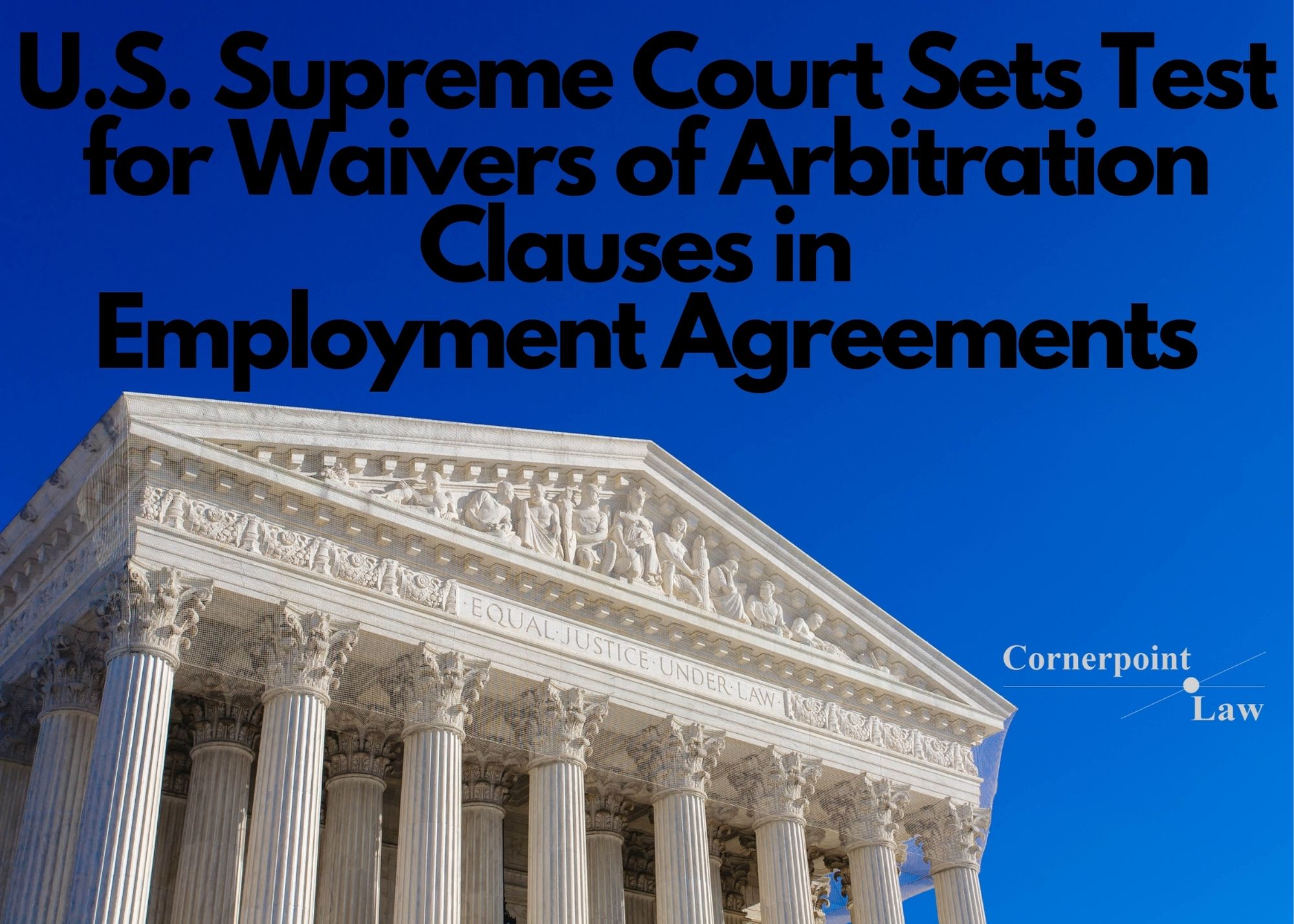“Dogs in the Workplace” Four Years Later – A Cornerpoint Case Pop
January 31, 2020
Unauthorized use and/or duplication of blogposts without express and written permission is strictly prohibited. Excerpts and links may be used, provided that full and clear credit is given, and with appropriate and specific direction to the original content.
The author of this post can be reached by phone at 206-693-2718 or by email.
An Update on Employer Liability for Dog Bites
By Stacia Hofmann
Cornerpoint Case Pops are dedicated to summarizing relevant, new cases — and their lessons — in bite-size posts.
In March 2016, I wrote a blogpost, Work Like a Dog, that covered the legal risks to employers when employees are allowed to bring their dogs to work. At that time, no Washington appellate court had determined an employer’s liability to customers for personal injuries resulting from an employee’s dog.
In October 2019, the Washington Court of Appeals evaluated premises liability, vicarious liability, and dog keeper liability – the three primary tort risks that I covered in my blogpost. This post, then, is an updated companion piece to my April 2016 post.
The Case: Austin v. Jimmy’s Contractor Services, Inc., Washington Court of Appeals, Division III, No. 36112-8-III (Unpublished, October 17, 2019)
Case Background
An employee1 was allowed to bring his dog to work, with the understanding that the dog needed to stay in the employee’s office and could not have contact with customers.
 A customer was on the employer’s premises to schedule a roof repair. The employee’s dog ran out of the employee’s office and bit the customer as the customer was preparing to leave. The customer filed a lawsuit against the employee and the employer.
A customer was on the employer’s premises to schedule a roof repair. The employee’s dog ran out of the employee’s office and bit the customer as the customer was preparing to leave. The customer filed a lawsuit against the employee and the employer.
Dog Owners Are Strictly Liable for Injuries Resulting From Dog Bites
In Washington, all dog owners are strictly liable for any injuries resulting from dog bites. This means that the mere fact that a dog bite causes injury results in the attachment of liability – even if the dog owner acted reasonably and even if the dog had never displayed dangerous or vicious propensities. Thus, the employee was liable for the dog bite.
Employer Liability for Dog Bites
But what about a Washington employer’s responsibility? The customer alleged three theories of liability against the employer, all of which are covered in more detail in my original 2016 post here.
(1) Vicarious Liability for the Dog Bite
Employers are responsible for the acts of their employees if the employees are acting within the scope of employment. The customer argued that this theory of law – known as vicarious liability – subjected the employer to liability for the dog bite. But the Court of Appeals disagreed. The dog was on the premises with the permission of the employer, but the dog had no role in the employee’s employment and did not further the employer’s interests. Thus, there was no vicarious liability.
(2) Premises Liability for the Dog Bite
Businesses face liability risks for unreasonably dangerous conditions on their premises if the business knows of those conditions or should know of them. A dog might be a dangerous condition, just like snow and ice, products and goods, or trip hazards. The customer argued that the dog was a dangerous condition on the premises, but the Court of Appeals again disagreed with the customer. The dog was friendly and playful and was present at the office without incident for several days prior to the bite, and the customer presented no evidence that the employer knew or should have known that the dog was dangerous. Thus, there was no premises liability.
(3) Harborer or Keeper Liability for the Dog Bite
Someone who harbors or keeps a dog may also be liable for a dog bite under certain circumstances. But someone is not a keeper of a dog merely because the dog is on their property. Just as the Court of Appeals did not find an unreasonably dangerous condition on the premises, it also did not find that the employer had unreasonably failed to protect the customer. Thus, there was no liability based on harboring or keeping a dog. The customer’s lawsuit against the employer was dismissed.
Key Takeaways
 With the Austin lawsuit, the Washington Court of Appeals gave real-life context to the liability risks to employers when employees’ dogs are allowed at work. The case is not binding on all future cases, but does provide a framework that other Washington courts are likely to follow. Importantly, in absolving the employer of liability, the Court of Appeals did not hold an employer can never be found liable for an employee’s dog’s actions. Instead, the court held that when an employee brings a dog to work for the employee’s own benefit, and there is no evidence that the employer knew or had reason to know of dangerous or vicious propensities, then the employer should not be held liable for a customer’s injuries from a dog bite. Revisit my list of risk management tips for dog-friendly employers, or email or call me to see if Cornerpoint can help with your risk management or employment questions.
With the Austin lawsuit, the Washington Court of Appeals gave real-life context to the liability risks to employers when employees’ dogs are allowed at work. The case is not binding on all future cases, but does provide a framework that other Washington courts are likely to follow. Importantly, in absolving the employer of liability, the Court of Appeals did not hold an employer can never be found liable for an employee’s dog’s actions. Instead, the court held that when an employee brings a dog to work for the employee’s own benefit, and there is no evidence that the employer knew or had reason to know of dangerous or vicious propensities, then the employer should not be held liable for a customer’s injuries from a dog bite. Revisit my list of risk management tips for dog-friendly employers, or email or call me to see if Cornerpoint can help with your risk management or employment questions.
This blog is for informational purposes only and is not guaranteed to be correct, complete, or current. The statements on this blog are not intended to be legal advice, should not be relied upon as legal advice, and do not create an attorney-client relationship. If you have a legal question, have filed or are considering filing a lawsuit, have been sued, or have been charged with a crime, you should consult an attorney. Furthermore, statements within original blogpost articles constitute Stacia Hofmann’s opinion, and should not be construed as the opinion of any other person. Judges and other attorneys may disagree with her opinion, and laws change frequently. Neither Stacia Hofmann nor Cornerpoint Law is responsible for the content of any comments posted by visitors. Responsibility for the content of comments belongs to the commenter alone.
- It is not entirely clear whether the dog’s owner was an employee or an independent contractor, but it does not matter for purposes of this blogpost discussion. ↩




